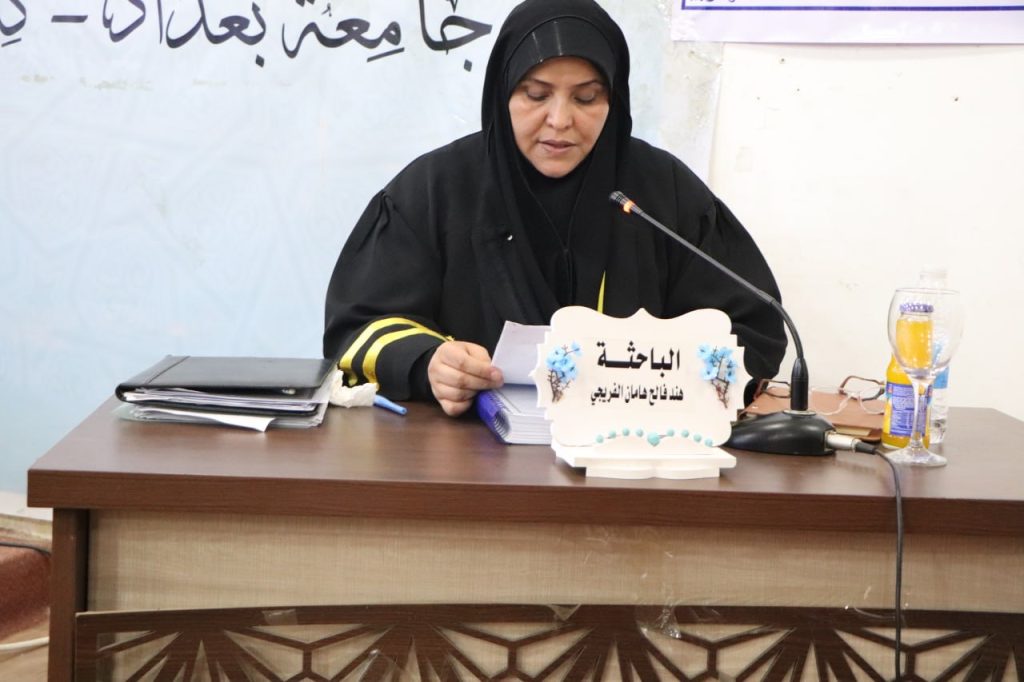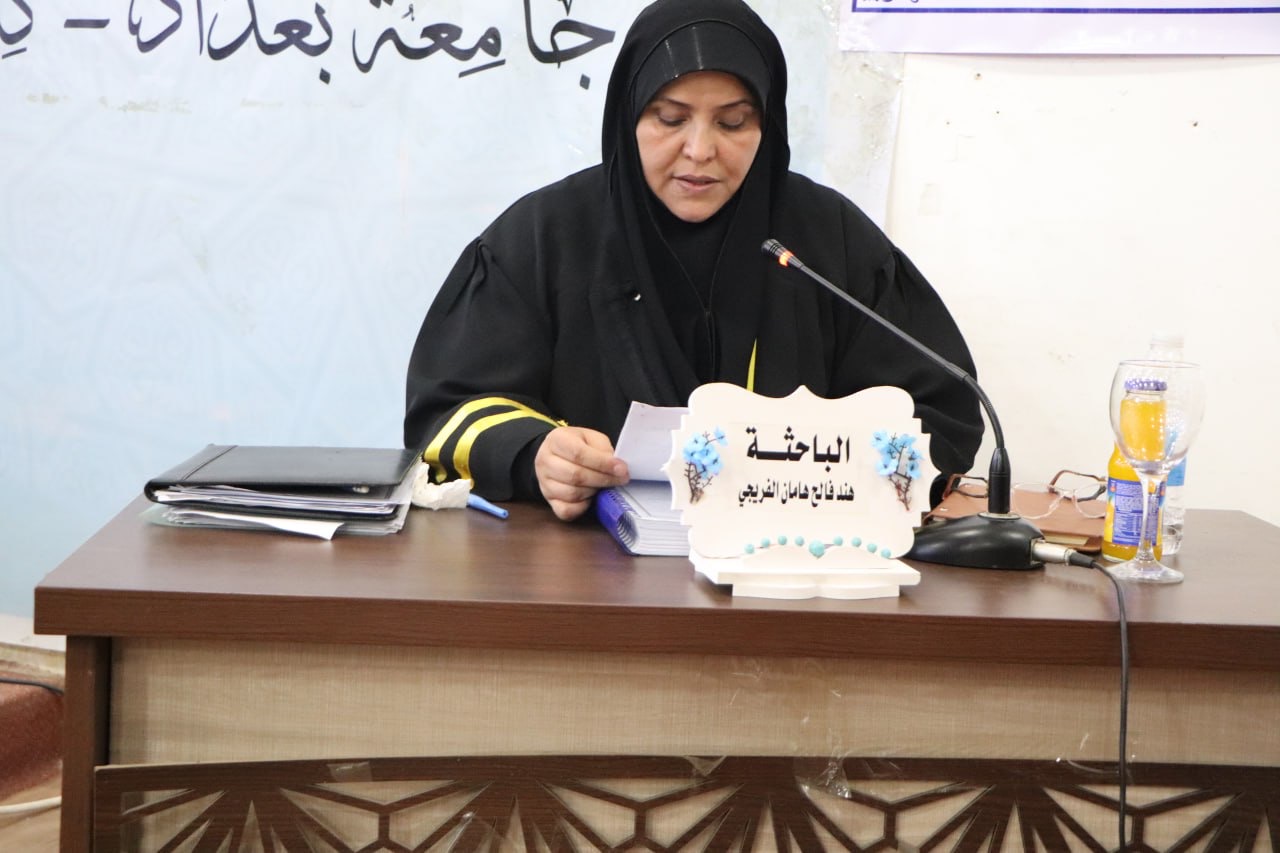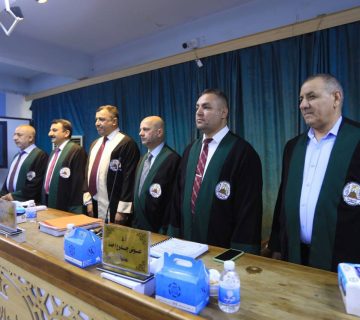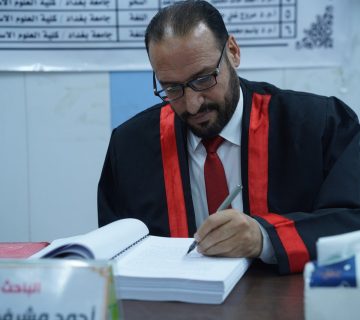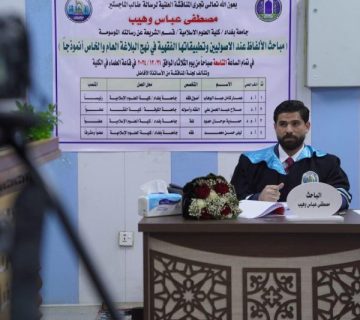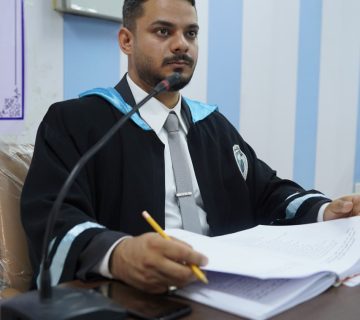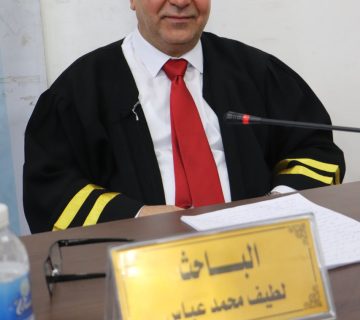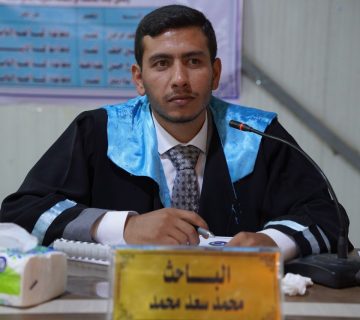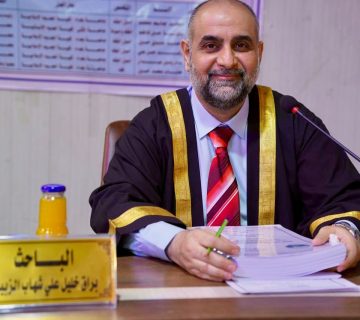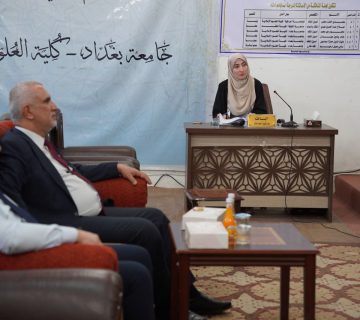The College of Islamic Sciences at the University of Baghdad discussed the thesis titled “Topics of Quranic Sciences According to Al-Fayd Al-Kashani (d. 1091 AH) in His Exegesis Al-Safi: An Inductive Descriptive Study,” presented by student Hind Faleh Haman from the Department of Islamic Belief and Thought, held in the Al-Bayt Al-Atyab Hall.
This study holds significant importance in elucidating the meaning of the Book of Allah, as it aims to extract the gems and pearls from Al-Kashani’s exegesis and examine the discussions surrounding the context of the Quran’s revelation. This endeavor ensures that Muslims remain fully alert when contemplating these profound sciences. Undoubtedly, the issues related to Quranic sciences are of utmost importance, as they serve as the pathway to understanding the Book of Allah and reflecting upon it.
The thesis concluded with a number of findings and recommendations, the most important of which is that studying the issues of Quranic sciences in exegesis is the best way to understand the Glorious Book of Allah. The study demonstrated that Al-Fayd Al-Kashani possessed extensive knowledge and was well-acquainted with most sciences, which is evident from his exegesis. His work encompassed numerous fields, including the sciences of exegesis, hadith, creed, and others.
The researcher called for greater attention to the works and writings of Al-Fayd Al-Kashani, as they are valuable contributions that address various sciences catering to the needs of the Muslim individual. Al-Fayd Al-Kashani relied on the Quran and the Prophetic Hadith in his writings, and in addition, he possessed exceptional skill in authorship and classification, which gives his works a distinctive character that resonates with all readers.
The thesis was approved with a passing grade by the discussion committee, which comprised Dr. Ahmed Wahid as chair, along with Dr. Shukriya Hamoud and Dr. Rafiq Muhammad as members, and Dr. Maha Talib Abdullah as a member and supervisor.
Professor Dr. Ni’ma Dahash Farhan and his administrative assistant, Professor Dr. Arkan Rahim Jabr, attended the discussion to closely monitor the academic atmosphere.

